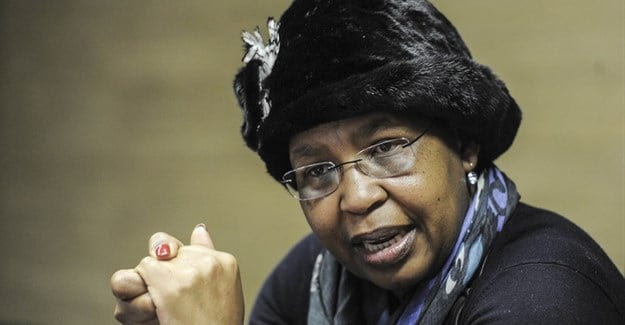Dr Malegapuru Makgoba, the Health Ombudsman, has done the nation a service in exposing some of the horrific story of the many vulnerable people allowed to die from dreadful neglect, due to shocking negligence and sheer carelessness of health officials. Penny-pinching in the name of saving money, while still enjoying their own generous salaries and perks, they allowed more than 90 helpless individuals to die terrible deaths by being handed over to groups unable or unwilling to provide even very basic care.
At least 94 humans, dependent on the help of others, died of neglect after transfer from institutions capable of providing such aid, to others that were not properly registered, not competently run, and without any due supervision. We’re not talking of a lack of highly sophisticated treatment : but a lack of food, water, warmth and safe shelter. Neglect on a scale most of us find hard to imagine. These people died needlessly, in most unpleasant and easily preventable ways. Dying of dehydration, cold, or hunger, is very unpleasant indeed. And dying of pneumonia or other easily treatable conditions is careless in the extreme, and implies a sense of euthanasia, of allowing people to slide away from neglected illness, because someone decides their lives are not worth preserving.
If the same neglect had been imposed on dogs, the SPCA would have been able to prosecute the perpetrators ; but with humans, our reactions are far less efficient.
It’s essential that bureaucrats must not be allowed impunity, and everyone involved in the decisions to move people to such inadequate facilities, in the failure to monitor their well-being, and in the failure to act promptly to rescue them, should be rapidly investigated and prosecuted. The well-known and over-used South African tactic, of allowing people to simply resign and then escape all consequences for their actions and inactions, must no longer be tolerated. Too often, falsely, in the name of “providing the survivors and families with closure” the system instead provides perpetrators with closure and immunity. What is being closed, and for who’s benefit ?
Apparently, the disastrous moves were not just stingy, but made in the name of “deinstitutionalization”, a dangerous weasel word. It makes sense, where possible, to try hard to avoid making people dependent on the care of comprehensive institutions, such that their ability to care for themselves, or to retain as much care in the community as practical, is impaired. But to suddenly dump people who are totally dependent on the care of others, on people eager to be paid for taking them on, but reluctant or unable to actually provide even minimal care, is plain wicked. Don’t call it “community care” where the community patently does not care.
Don’t rely on any NGO just because of what they claim they can do : assess carefully their track record of what they actually DO, especially what they do when nobody’s looking. They should never ever be accredited or licensed for mere convenience, and without evidence that they reliably meet proper criteria.
It is alleged by some that the transfers did not include what was the absolute duty of all doctors, nurses and administrators previously involved in their care, to ensure that all patient records, and relevant information about their needs, was transferred with them. Indeed, where very sick or fragile patients are concerned, it would be appropriate for caregivers to make contact with those who took over from them, to check that the people are being properly cared for.
Not providing families with information, before and after the deaths, adds a fresh layer of needless cruelty.
But to make it worse still, these deaths were foreseen ; there were protests and warnings, from professionals and experts, families and advocacy groups. All this was stonily ignore by apparently relentless and arrogant officials, certain that they knew best and should not be challenged. Such petty tyrants should never be allowed to believe they are impregnable and or be able to ignore challenges and protests.
If the officials responsible for this debacle knew so little about what they were doing, or about the cruel results of their commands : what have we been paying them for ?
Does such gross and callous negligence amount to culpable homicide, or some other serious crime ? Such questions need to be asked and answered, and soon. If such suffering were imposed on duly convicted prisoners, there’d be talk of torture. These were not civil servants : they were never civil, and not sufficiently servants of the people.
Maybe these could be some of the first cases Gerrie Nel could tackle in his new post ?




